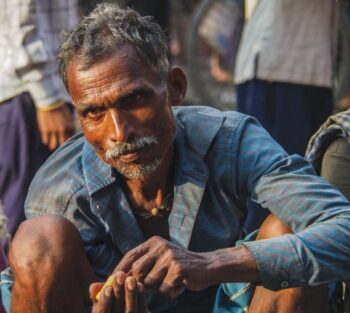 The Global Brain Health Institute, made up of partners in Trinity College Dublin, the University of California, San Francisco (UCSF) and the The Neurology Academy in the UK have come together as part of an innovative collaboration on a project in Bangladesh to reduce the impact of dementia on the country’s aging population.
The Global Brain Health Institute, made up of partners in Trinity College Dublin, the University of California, San Francisco (UCSF) and the The Neurology Academy in the UK have come together as part of an innovative collaboration on a project in Bangladesh to reduce the impact of dementia on the country’s aging population.
A network of mentors will be established via the partnership to enhance learning and training programmes for Bangladeshi clinicians diagnosing and treating aging brain health.
Context
With a total population of 165 million in Bangladesh, dementia is widespread among 11 million people over aged 60, but for varying reasons, including stigma and poor health literacy, services to support people and their families are rare. Family members, usually women, or informal and untrained carers, are on the front-line of delivering dementia care at home, which often has negative health, social and economic implications.
The work of the partnership aims to reduce the burden of dementia by training and connecting the next generation of leaders in brain health. Each of the three international partners will play their part to expand preventions and interventions and to share knowledge. A training and advocacy component among healthcare professionals will be key to improving awareness and understanding of dementia.
Programme
The project will link healthcare staff in Bangladesh through the nation’s leading academic institution BSSMU – the University Hospital in Dhaka, with a comprehensive dementia training programme.
A masterclass training programme ‘Dementia Training Camp for Clinicians’ focused on both disease management and service transformation will be delivered with the aim of upskilling non-specialist clinicians for dementia care and management. This camp will start with existing toolkits as a template and work with participants to adapt the modules for the Bangladeshi context, taking language, culture and socioeconomic factors into consideration.
Crucially, research capacity and capability for aging brain health and dementia, with a handful of exceptions, is non-existent. Moreover, the health and social care infrastructure to diagnose and support people with dementia in Bangladesh is minimal.
The shared, long-term goal of the partnership is to strengthen the knowledge, awareness and practice in dementia diagnosis and care in Bangladesh to benefit the health, wellbeing and quality of life of older people. This will be done through education, leading to changes in awareness and practice, and ultimately, policy and service provision.
In the absence of a stand-alone or integrated National Dementia Plan, the partnership will also work to help develop a national policy for dementia in Bangladesh. In terms of contribution to human resources for health, capacity building within different government and nongovernmental organisations of Bangladesh, including the Supreme Court of Bangladesh will be instrumental in advancing policy for the older demographic.
Outputs will include a core team of ‘Dementia Leaders’ who can provide training to their own colleagues in their homes; equipped with locally adapted toolkits; and a team of Bangladeshi professionals focused on dementia, working alongside international experts in the field.
Key objectives of the project are to:
- Provide greater awareness of dementia for People with Dementia (PwD) and their families: The toolkits and teaching resources developed through the activities of this project will directly benefit PwD and their families but signposting stakeholders to information and resources. This knowledge will reduce stigma and support those living with dementia.
- Offer more support for caregivers, particularly women, thus addressing gender inequalities: A dual focus of the project will be to improve the lives of patients with dementia, but also improve the quality of life of caregivers, that is, wives, daughters or daughters-in-law in Bangladesh
- Enhance knowledge and skill for healthcare workers: This partnership will strengthen existing dementia care through improvements to the knowledge and attitude of the healthcare professionals involved in dementia care in Bangladesh.
- Tighten the academic gap in brain health/dementia research: As the BSMMU is the nation’s leading medical education institution and educates medical professionals for the entire nation, collaborating with BSSMU to deliver this project will have immediate consequences for healthcare in Bangladesh
- Support policy development for older peoples’ health in Bangladesh: The partnership will contribute to a wide range of improvements in the local health system through the establishment of an evidence base.

